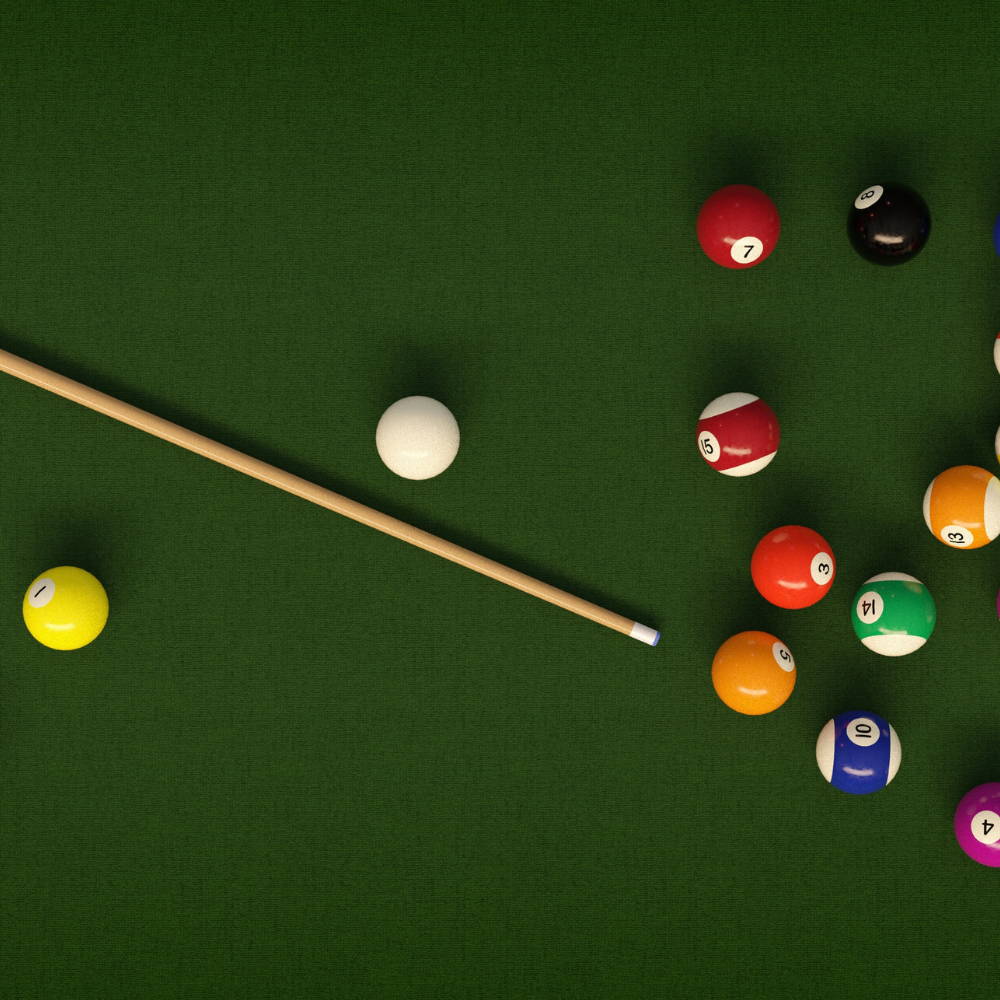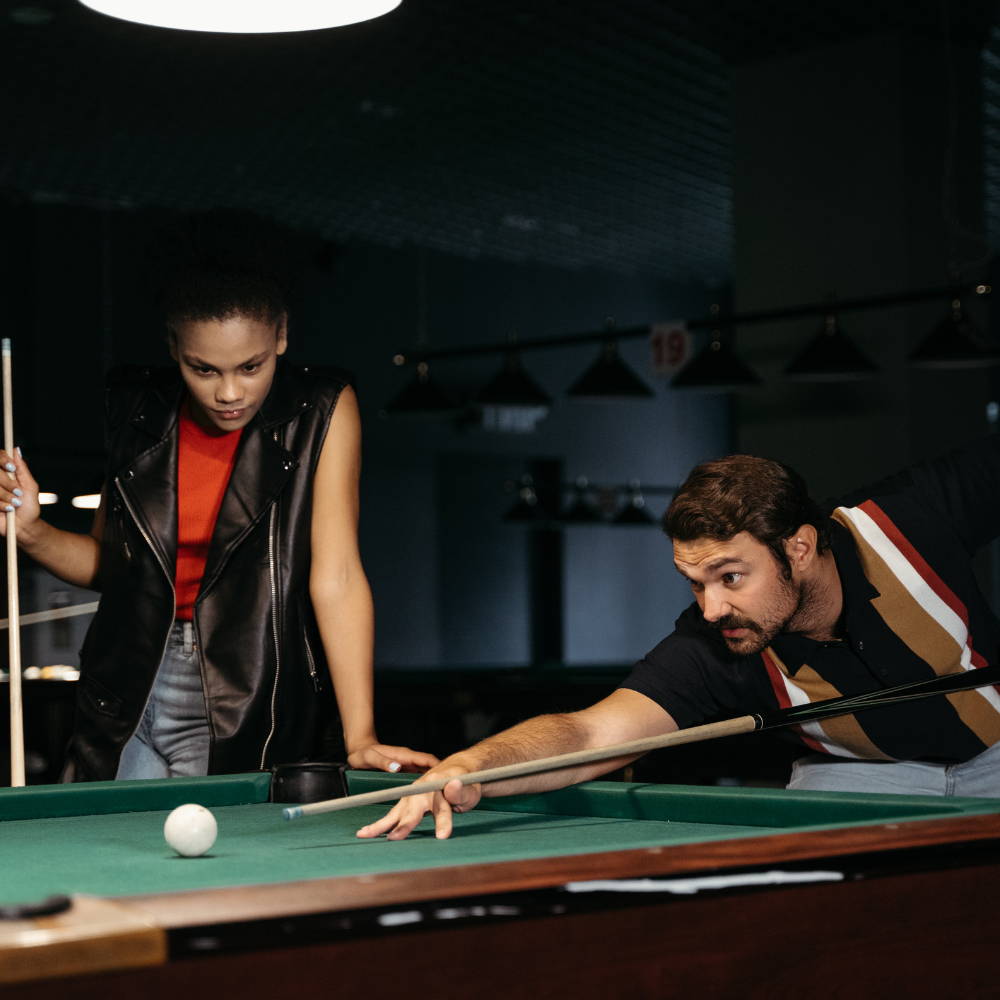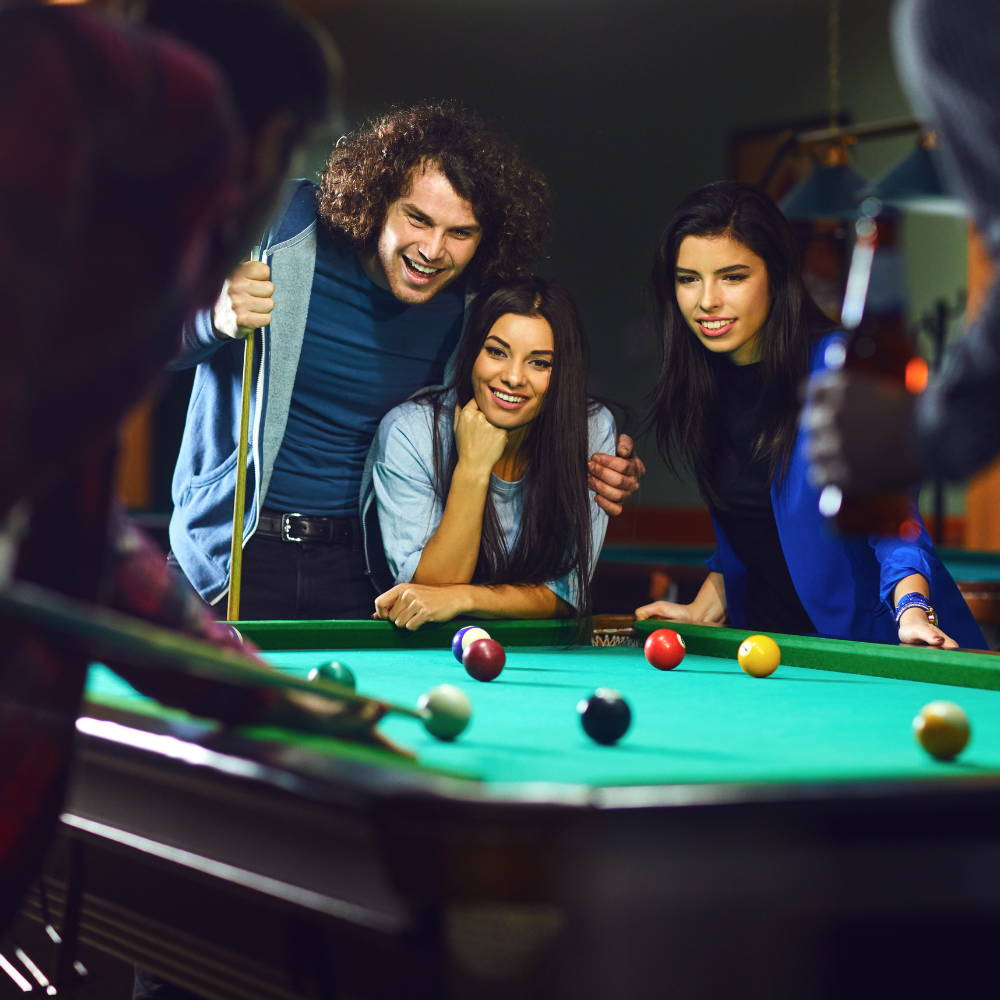The Psychological Benefits of Playing Pool and Billiards
When we think of playing pool or billiards, we often envision the smoky ambiance of a pub or the competitive spirit of a pool hall. What might not immediately come to mind are the psychological benefits that come with this beloved cue sport. In the United Kingdom, where cue sports have a rich tradition and are enjoyed in various settings, including pubs and private game rooms, it's worth exploring how playing pool and billiards can positively impact mental well-being.

1. Stress Reduction
One of the most significant psychological benefits of playing pool and billiards is stress reduction. The game requires a high level of focus and concentration, making it an excellent way to take your mind off daily worries and anxieties. When you're engrossed in the game, your brain shifts its attention away from stressors, providing a mental escape. Additionally, the repetitive nature of taking shots and planning strategies can have a calming effect, similar to meditation.
2. Improved Focus and Concentration
Playing pool and billiards demands a keen sense of focus and concentration. You must assess the table, plan your shots, and execute them precisely. This mental exercise can enhance your ability to concentrate on tasks in other areas of your life, such as work or studies. Over time, you may find that your attention span and problem-solving skills improve as a result of playing cue sports.
3. Social Interaction and Connection
In the UK, pool and billiards are often enjoyed in social settings, whether it's a local pub or a friendly game in a home game room. Engaging in cue sports provides an opportunity for social interaction and connection with others. Playing with friends or strangers can lead to new friendships and strengthen existing ones. Socializing during a game can boost your mood and reduce feelings of loneliness.
4. Strategic Thinking and Decision-Making
Cue sports are strategic games that require careful planning and decision-making. Players must not only think about their current shot but also anticipate their opponent's moves. This strategic thinking can enhance your ability to make well-informed decisions in various aspects of life. Whether it's in business negotiations or everyday problem-solving, the skills honed on the pool table can be transferable.
5. Patience and Persistence
Success in pool and billiards often requires patience and persistence. You may not make every shot, and the game can be frustrating at times. However, learning to cope with setbacks and stay patient is an essential aspect of cue sports. This mental resilience can translate into increased patience and persistence in facing challenges outside of the game.
6. Boost in Self-Confidence
As you improve your skills and win games, you'll likely experience a boost in self-confidence. Achieving success on the pool table can have a positive impact on your self-esteem, leading to increased self-assuredness in other areas of your life. This newfound confidence can influence how you approach challenges and opportunities.
7. Mental Agility and Coordination
Playing cue sports requires mental agility and hand-eye coordination. You must calculate angles, judge distances, and execute precise shots. These mental and physical skills contribute to improved overall coordination and agility. This can be particularly beneficial as you age, helping to maintain cognitive and motor function.

8. Stress Release and Mood Elevation
The act of striking the cue ball and sinking a shot can be incredibly satisfying. The release of endorphins that comes with success in cue sports can elevate your mood and provide a sense of accomplishment. This positive feedback loop encourages continued play and can contribute to a more positive outlook on life.
9. Mindfulness and Presence
In cue sports, being fully present in the moment is essential. You must focus on the current shot without distraction or worry about future moves. This mindfulness and presence can serve as a mental respite from the constant distractions and demands of modern life. It's a moment of clarity and concentration that can be deeply rewarding.
10. Goal Setting and Achievement
Improving your skills in pool and billiards often involves setting goals and working towards them. Whether it's mastering a particular shot or aiming to win a local tournament, the process of setting and achieving goals is a valuable skill. It can motivate you to strive for success in other areas of life, both big and small.
11. Emotional Regulation
Cue sports often involve moments of frustration, especially when a shot doesn't go as planned. Learning to manage these emotions and stay composed under pressure can be a valuable skill. It teaches emotional regulation, which can extend to handling stress and adversity in everyday life.
12. Problem-Solving Skills
Every game of pool or billiards presents a unique puzzle. You must assess the table layout and determine the best sequence of shots to clear the balls. This constant problem-solving fosters critical thinking skills that can be applied to real-life challenges.
13. Time Management
Playing cue sports requires time management skills. You need to allocate sufficient time for each shot, plan your moves, and assess the pace of the game. This sense of timing and efficiency can spill over into how you manage your time outside the game.
14. Memory Enhancement
Remembering the position of balls on the table, recalling your opponent's previous shots, and strategizing for future moves all engage your memory. Regularly playing cue sports can lead to memory enhancement and improved cognitive function.
15. Adaptability
In cue sports, no two games are exactly the same. Each game presents new challenges and opportunities. Learning to adapt to changing circumstances and adjust your strategy on the fly is a valuable life skill that can improve adaptability in various situations.
16. Sportsmanship and Respect
Cue sports emphasize sportsmanship and respect for your opponent. Exhibiting good sportsmanship, even in the face of defeat, is a quality that extends beyond the pool table and into your interactions with others.
17. Creative Thinking
While there are standard techniques in cue sports, creativity often plays a role in crafting unorthodox shots or navigating challenging situations. This encourages creative thinking and innovation.

Conclusion
In the United Kingdom, where cue sports hold a special place in the hearts of many, the psychological benefits of playing pool and billiards should not be underestimated. From stress reduction and improved focus to enhanced social interaction and self-confidence, the mental rewards of cue sports are numerous. So, the next time you pick up a cue, remember that you're not just playing a game; you're also nurturing your mental well-being.
Are you looking for a Pool Table? check out our pool tables range Pool Tables





